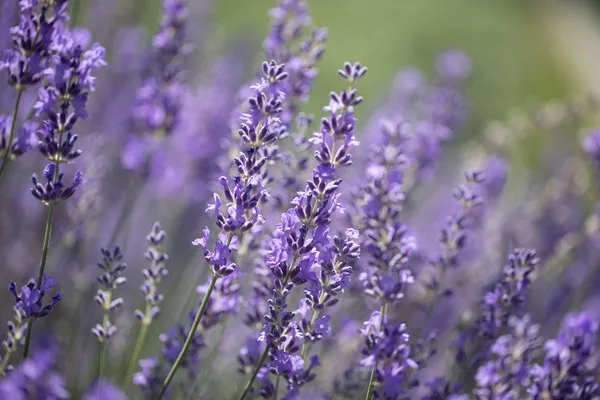Maintaining a vibrant and pest-free garden is a dream for every enthusiastic gardener. Slugs, notorious for their destructive feeding habits, can quickly turn this dream into a nightmare. These slimy creatures can devour a wide variety of plants, leaving a trail of devastation in their wake. While chemical pesticides are available to combat slug infestations, they often come with environmental concerns and potential harm to beneficial insects. Fortunately, nature offers a solution in the form of certain flowers that have the ability to repel slugs naturally. In this article, we will delve into the world of slug-resistant flowers and explore their effectiveness in deterring these pests.
Understanding the Slug Problem
Before delving into the flowers that deter slugs, it’s important to understand the nature of the problem they pose to gardens. Slugs are soft-bodied mollusks that thrive in damp and cool environments. They feed on a wide range of plant material, including leaves, stems, and fruits. This feeding habit can cause significant damage to garden plants, leading to stunted growth, unsightly holes, and even plant death. Traditional methods of slug control often involve chemical pesticides, but these methods can have adverse effects on the ecosystem, including harming non-target species and contaminating the soil and water. Therefore, finding natural alternatives is essential for maintaining a healthy and balanced garden ecosystem.
Flowers as Natural Slug Deterrents
Certain flowers possess natural properties that make them unappealing to slugs. These flowers emit scents, textures, and substances that slugs find unpalatable or irritating, deterring them from approaching the area. By strategically planting these slug-resistant flowers in your garden, you can create a natural barrier that helps protect your plants from slug infestations.
1. Marigolds (Tagetes spp.)
Marigolds are not only known for their vibrant colors but also for their pest-repelling properties. The strong scent of marigolds, particularly the French and African varieties, is known to deter a variety of pests, including slugs. Additionally, marigold roots release a substance that repels nematodes, which are microscopic soil-dwelling pests that can damage plant roots. By planting marigolds at the borders of your garden beds or interspersed among your other plants, you can create a slug-resistant barrier while adding visual appeal to your garden.
2. Lavender (Lavandula spp.)
Lavender’s aromatic fragrance is beloved by humans but detested by slugs. The strong scent of lavender acts as a natural deterrent for a range of garden pests, including slugs. Planting lavender around susceptible plants can help keep slugs at bay while attracting pollinators like bees and butterflies. Additionally, dried lavender can be used to create sachets or sprays that can be strategically placed around your garden to enhance its slug-repelling effects.
3. Fennel (Foeniculum vulgare)
Fennel is a multi-purpose herb that not only adds flavor to culinary dishes but also helps deter slugs. Its distinct anise-like scent and flavor are unappealing to slugs, making it an excellent companion plant for your garden. Fennel’s feathery foliage and tall growth habit also make it an attractive addition to your garden landscape. Planting fennel near plants that are particularly susceptible to slug damage can provide a protective shield against these pests.
4. Rosemary (Rosmarinus officinalis)
Rosemary is a versatile herb with a strong scent that is known to repel a variety of pests, including slugs. This evergreen shrub’s aromatic oils can deter slugs effectively when planted strategically around your garden. Rosemary’s upright growth habit also makes it an excellent choice for forming natural borders or hedges that can help keep slugs from infiltrating your garden beds.
5. Geraniums (Pelargonium spp.)
Geraniums are not only cherished for their colorful blooms but also for their pest-deterring properties. The scent of geraniums is known to repel a variety of pests, including slugs. These flowering plants can be potted or planted directly in the ground to create a protective barrier around your more vulnerable plants. Geraniums are available in a range of colors and varieties, allowing you to customize your garden’s defense against slugs while adding beauty to your outdoor space.
Implementing Slug-Resistant Strategies
While incorporating slug-resistant flowers into your garden can significantly reduce the risk of slug infestations, it’s important to complement this approach with other slug control strategies to ensure the health of your plants. Here are a few additional measures you can take:
1. Cultural Practices
Maintain proper garden hygiene by removing debris, fallen leaves, and hiding spots for slugs. Creating a less hospitable environment for slugs can discourage their presence in your garden.
2. Irrigation Management
Since slugs thrive in damp conditions, practicing controlled irrigation can help reduce their habitat. Water your garden in the morning, allowing the soil to dry out during the day, which can make the environment less conducive to slugs.
3. Natural Predators
Encourage natural predators of slugs, such as birds, frogs, toads, and ground beetles, to inhabit your garden. Creating habitats for these beneficial creatures can help keep slug populations in check.
4. Copper Barriers
Slugs are sensitive to copper, and placing copper barriers around vulnerable plants or garden beds can create an effective deterrent. When slugs come into contact with copper, it releases a mild electric charge that repels them.
Conclusion
In the pursuit of maintaining a thriving garden, the battle against pests like slugs requires a holistic approach that prioritizes the health of both plants and the ecosystem. Incorporating slug-resistant flowers into your garden not only adds aesthetic value but also contributes to the natural balance of your outdoor space. By harnessing the power of nature’s own defenses, you can enjoy the beauty of your garden while minimizing the impact of slugs on your plants. Remember that while these flowers can provide significant assistance in slug control, they work best when combined with other environmentally friendly practices that promote a harmonious garden ecosystem.


